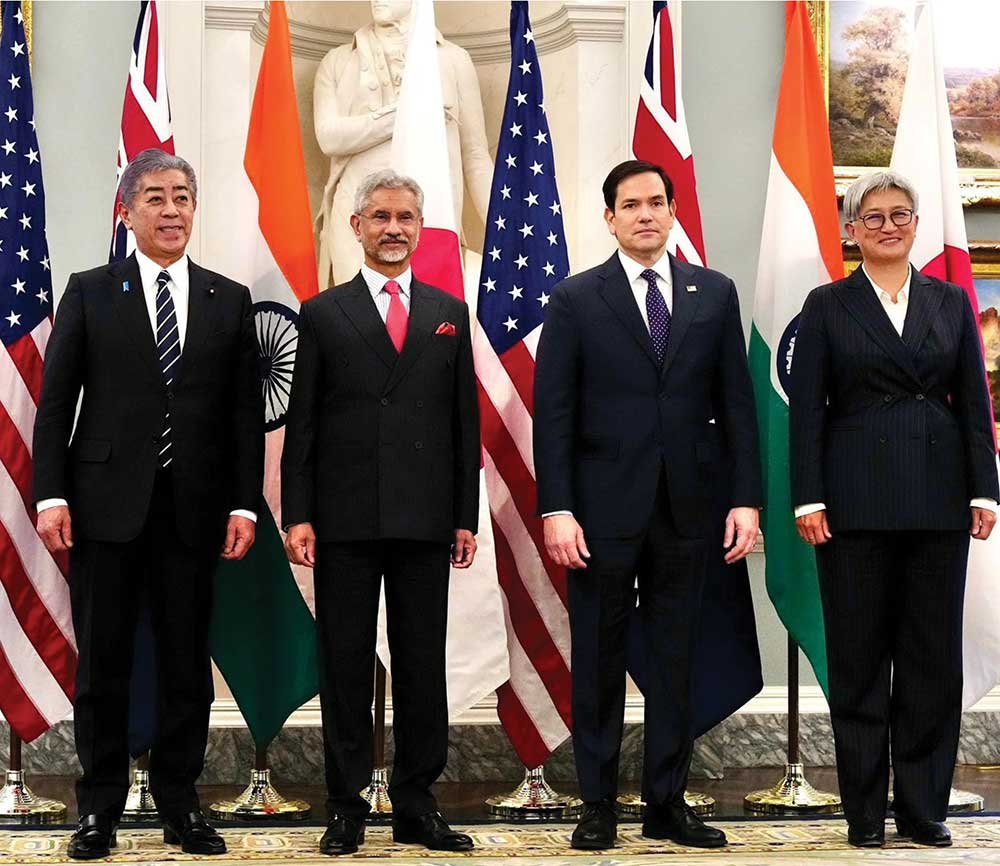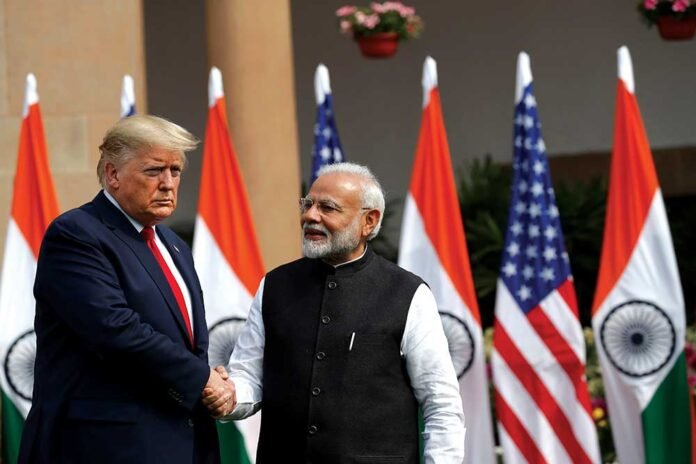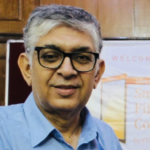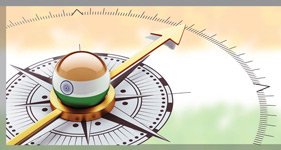As Donald J Trump began his second innings as 47th President of the US on January 20, an intense debate is brewing in diplomatic and strategic circles across the globe on major policy shifts which Trump has already announced and the possible turn of events in the months to come. The world remains tense as it is not known what path President Trump will take and what kind of impact it will make on the global ties.
Stating in his inaugural address that “Golden Age of America begins now’’, President Trump pledged to rescue American from what he described as years of betrayal and decline, prioritising a crackdown on illegal immigration. In India too, there are concerns about his second term, as the bilateral ties face many challenges. Will Trump change rules of the game? While India-US relations are on a firm footing, New Delhi is particularly concerned about two issue – tariffs and illegal immigration – which were underlined in Trump’s inaugural address.
Given assertions made by Trump after assuming charge at the White House, there is little doubt that India-US ties are entering a new phase with his return after a gap of four years. India’s relationship with the US encompasses strategic areas, particularly defence cooperation, technology transfer etc.
The new Trump administration is sure to present a new set of challenges for India’s strategic interests, notably in sectors like defence and trade as well as regional diplomacy. The US emerged last year as India’s top trading partner and the economic interdependence spans across sectors from IT services to pharmaceuticals, new technologies and manufacturing. In the area of strategic defence cooperation, the bilateral partnership has evolved over the past years and graduated from a buyer-seller relationship to co-development and co-production of military hardware.
The cooperation between the two countries extends from maritime security in the Indo-Pacific to counter-terrorism, and intelligence sharing. The ongoing QUAD partnership which apart from US and India, also has on board Australia and Japan, and has been instrumental in strengthening bilateral ties.
Within hours of his inauguration, President Trump’s administration held QUAD foreign ministers meeting in Washington DC which was attended by External Affairs Minister S Jaishankar. The meeting was used to send a clear and strong signal to China. The US Secretary of State Marco Rubio, External Affairs Minister S Jaishankar, Australian Foreign Minister Penny Wong and Japan’s Foreign Minister Takeshi Iwaya “strongly opposed any unilateral actions that seek to change the status quo by force or coercion.’’
The meeting of QUAD foreign ministers also signalled countering China a top priority for the Trump administration. QUAD foreign ministers reaffirmed their “shared commitment to strengthening a Free and Open Indo-Pacific where the rule of law, democratic values, sovereignty, and territorial integrity are upheld and defended.’’
As Donald J Trump began his second innings as 47th President of the US on January 20, an intense debate is brewing in diplomatic and strategic circles across the globe on major policy shifts which Trump has already announced and the possible turn of events in the months to come
Trump’s tough stand on China, swift revival of the four-nation QUAD dialogue, strong stand against Pakistan-sponsored terrorist activities and robust growth in US-India defence and security cooperation are some of the issues worth clearly watching for.
Differences over trade, tariff and investment issues remained during Trump 1.0, but failed to derail the US-India strategic partnership which was carefully and painstakingly built over the past two decades.
Though President Trump’s unpredictability weighs in as a key factor in shaping future Indo-US ties, foreign policy experts anticipate a “strong momentum” in Indo-US ties, while others have cautioned that there will be “some challenges” going forward. Former diplomats opine that India’s ties with the US will continue on a strong footing but sounded a note of caution, saying a “wait and watch’’ attitude will be the best policy for New Delhi to see what position President Trump takes on crucial issues.
As far as India-US defence trade is concerned, it has grown by leaps and bounds in the past decade, touching over 20 billion US dollars in 2020. India has also signed all four foundational defence agreements with the US. The naval exercise “Malabar’’ which began in 1992 as a bilateral naval drill between the navies of the two countries has evolved into an important multilateral event.
For India, the US also remains important in the area of technological advancement, particularly in semiconductors, quantum computing and AI. Silicon Valley continues to be a major hub for Indian tech talent and startups. US has also emerged as a key energy partner for India in helping to diversify its energy sources away from traditional supplies.

In broader geopolitical terms, Trump 1.0 administration’s policies towards South Asia and the Indo-Pacific region were by and large in keeping with the national interests of India. In the first few days of the new Trump administration, there have been positive signals like presence of External Affairs Minister S Jaishankar at the inaugural ceremony, meeting of QUAD foreign ministers and a tough joint statement after the meeting pointing towards continuation of positive and constructive ties between India and the US.
India can take comfort from the fact that the bilateral relationship with the US has grown to such an extent that it will not be possible to derail it. Also, President Trump and Prime Minister Narendra Modi share a close personal rapport which can easily come handy in adding warmth to the ties and ironing out any differences.
However, it cannot be denied that New Delhi should be ready with well thought out response to face challenges and tackle unexpected situations which may arise from time to time. Global climate and uncertainty may throw up challenges in the bilateral ties from time to time but strategic and defence ties are well set to grow and deepen in the years to come.
In the US too, there is bipartisan consensus on the importance of partnership with India. In broader terms, the new political and ideological climate in the US is laced with nationalism and agenda of America First, which aligns well with the ruling dispensation in India. Also, shared concerns and anxiety about China is another factor that binds the two countries.
–The writer is a senior journalist based in Delhi. The views expressed are personal and do not necessarily reflect the views of Raksha Anirveda
















